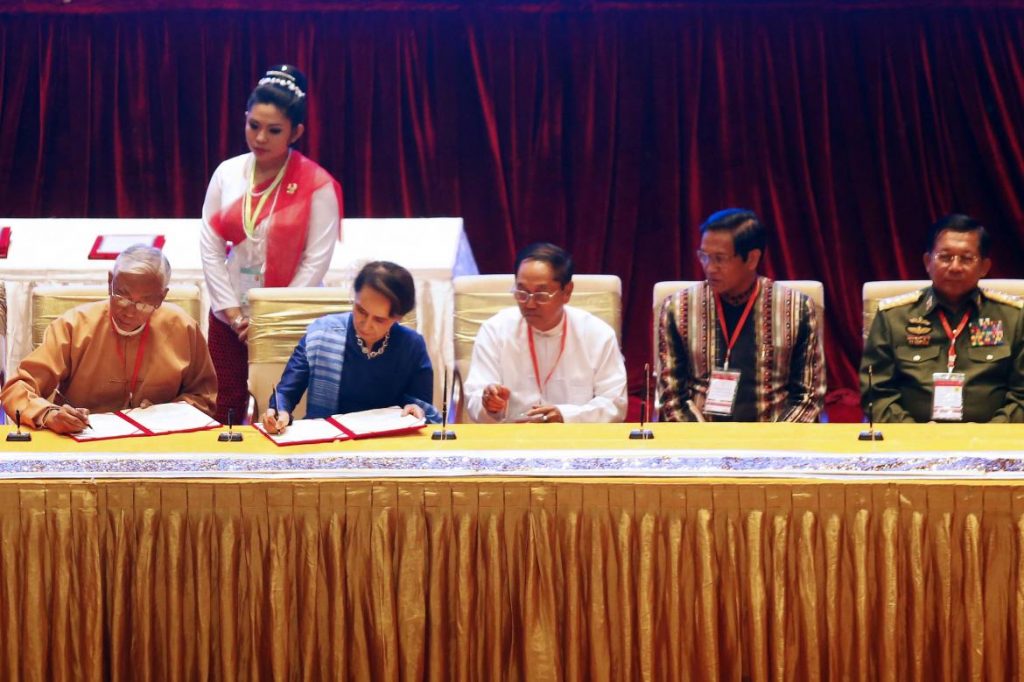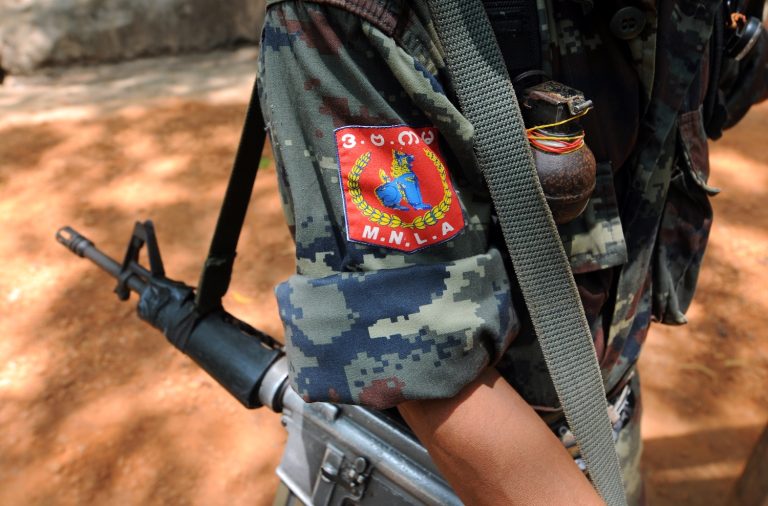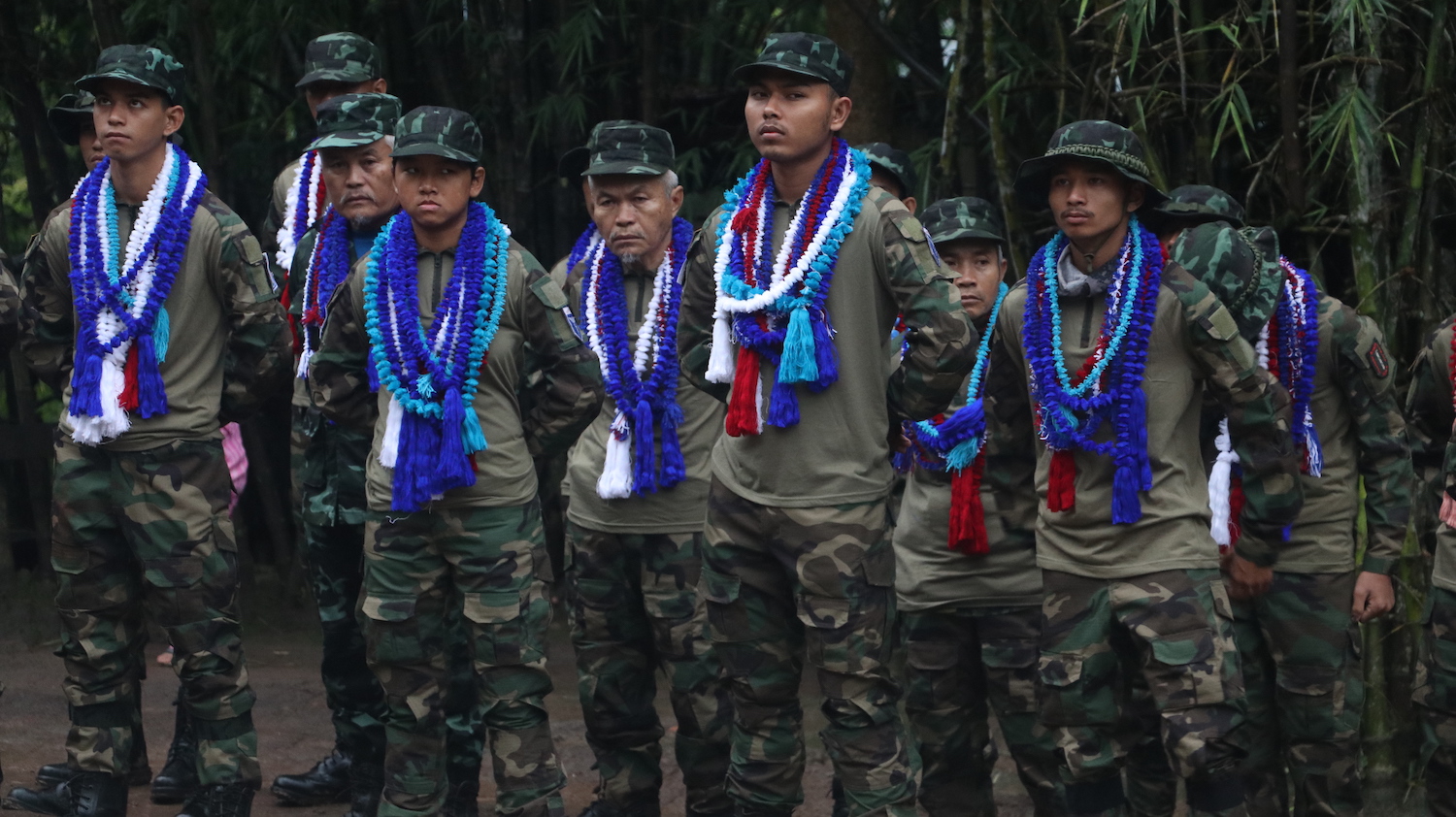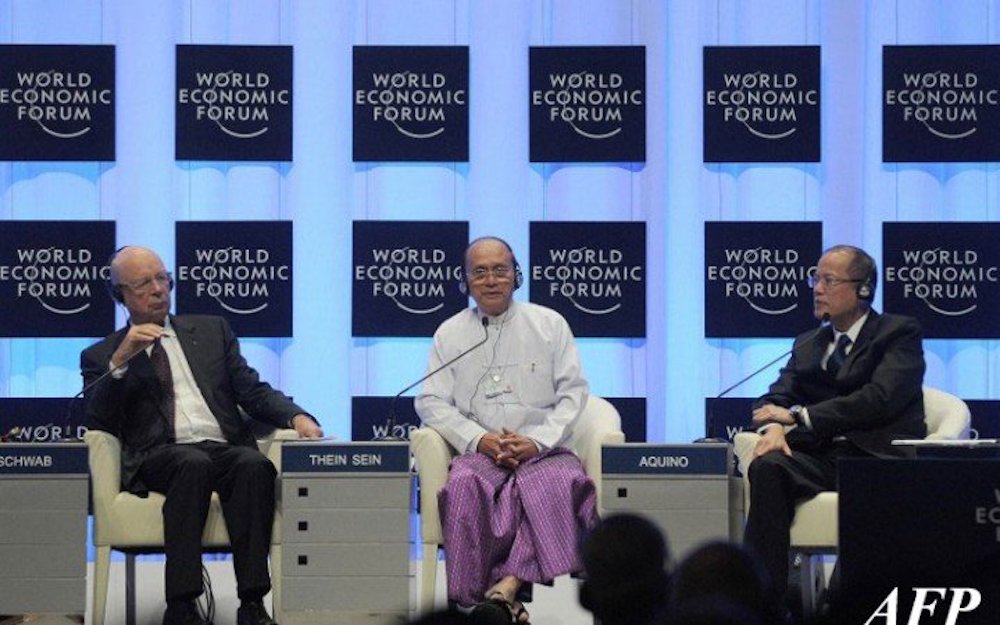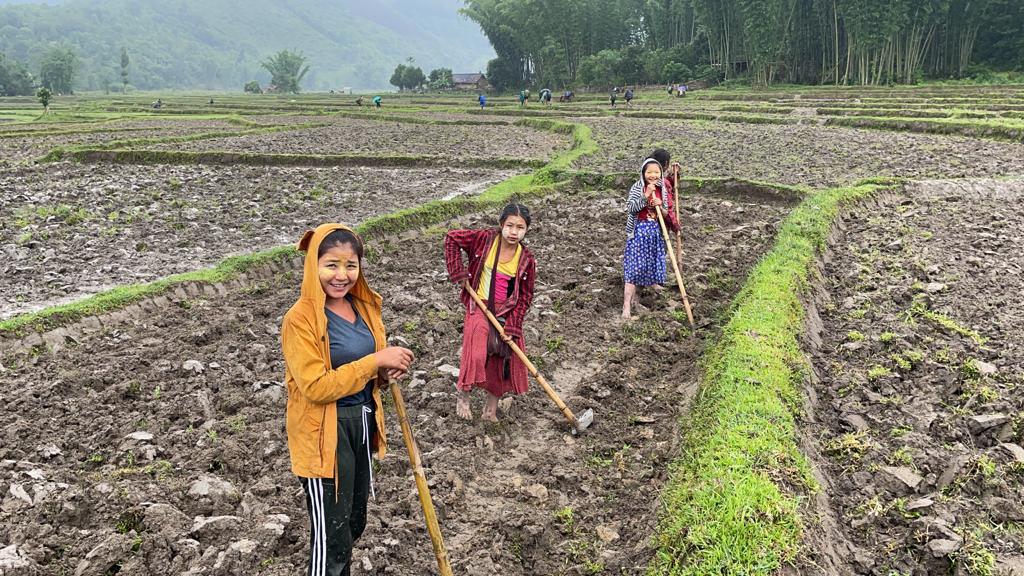The last-minute decision by the Arakan National Council not to sign the Nationwide Ceasefire Agreement has highlighted the many challenges to the pursuit for lasting peace.
By NYAN HLAING LYNN | FRONTIER
THE PEACE process took a step forward on February 13, a date rich with symbolism because it marked the 103rd anniversary of the birth of independence hero, architect of the Panglong Agreement and “father” of the Tatmadaw, Bogyoke Aung San.
The auspicious date was chosen for a ceremony in Nay Pyi Taw at which the New Mon State Party and the Lahu Democratic Union became the first ethnic armed groups to sign the Nationwide Ceasefire Agreement under the National League for Democracy government.
The signing of the NCA by eight groups in October 2015 was hailed as major achievement of the peace process re-ignited in 2011 by the Union Solidarity and Development Party government of President U Thein Sein.
In her address at the February 13 ceremony, State Counsellor Daw Aung San Suu Kyi – Aung San’s daughter – reiterated her appreciation “on behalf of the country and the people” to the USDP government and Thein Sein for initiating the NCA.
Support more independent journalism like this. Sign up to be a Frontier member.
Aung San Suu Kyi said the efforts of the previous government had enabled the NLD government to launch political dialogues as part of the peace process, resulting in agreement on 37 principles at the second 21st Century Panglong Union Peace Conference, which was held in Nay Pyi Taw in May 2017.
The principles will be included in a future agreement to end decades of civil conflict and create a federal democratic union.
The state counsellor emphasised that the NCA was only a starting point.
“The NCA is not the end of the peace process. The NCA is the beginning of the peace process,” she said.
“The beginning of political dialogues, the beginning of reduction of armed conflicts; it is the beginning of the political process that will result from the resolution of political problems through negotiations, discussions and the joint search for solutions.”
Aung San Suu Kyi said years of conflict since independence had resulted in Myanmar lagging behind in development and becoming one of the world’s least-developed countries.
There was no time to waste in the pursuit of lasting peace, she said.
“I wish to remind all of you not to waste this opportunity. Do not be timid to take a step forward. What we have to fear is the fear that lingers in our minds,” she said.
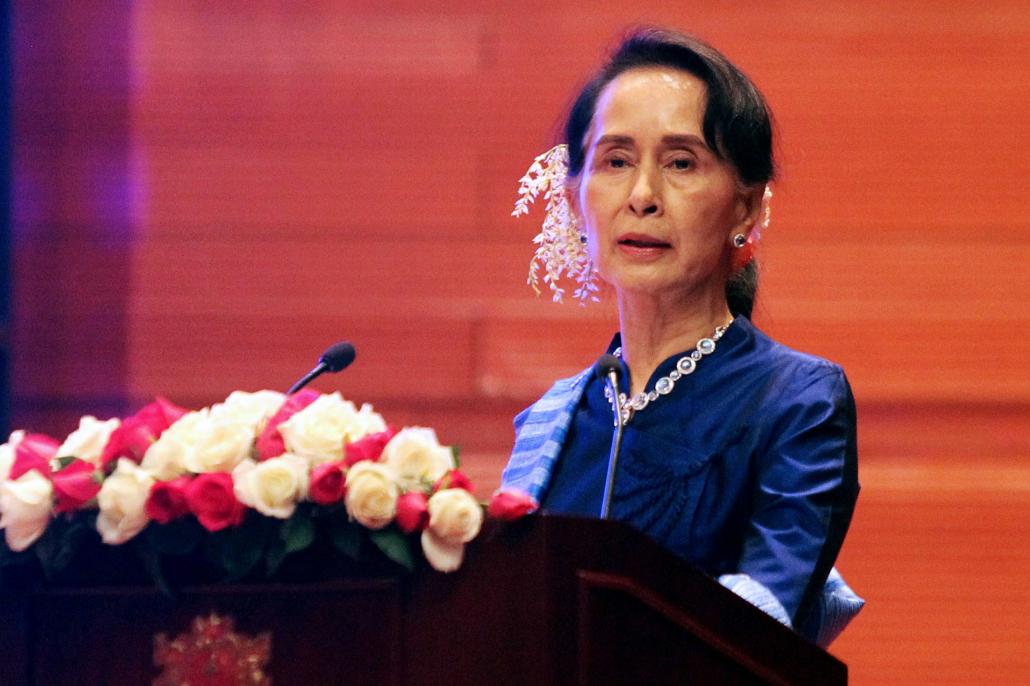
Daw Aung San Suu Kyi speaks during the NCA signing ceremony for the New Mon State Party and Lahu Democratic Union in Nay Pyi Taw on February 13. (AFP)
In his speech at the event, Tatmadaw Commander-in-Chief Senior General Min Aung Hlaing praised the “correct and brave” decision of the NMSP and the LDU.
Min Aung Hlaing said some ethnic armed groups were yet to sign the NCA because they “mistakenly” thought that doing so would amount to surrender and giving in to the government and the Tatmadaw.
Signing the NCA provided for political problems to be peacefully solved in roundtable negotiations, he said.
“It is only the NCA that can guarantee to end 60 or 70 years of armed struggle,” the Tatmadaw chief said.
Both the state counsellor and the Tatmadaw commander-in-chief stressed that peace and stability were essential for national progress and development.
“The universe, which is changing every second, and today’s world will not wait for our country. Are we going to leave behind the same country with armed conflicts for our new generations, or are we going to leave behind a unified and strong country worthy of respect by others?” Aung San Suu Kyi said.
Min Aung Hlaing said it was undeniable that development was the fruit of peace and stability.
“For the time being, our country would have to redouble our efforts to keep abreast with other countries even if our country had seen peace and stability without armed conflicts,” he said.
In an opening speech at the ceremony, Union Peace Commission chairman Dr Tin Myo Win said the signing by the two groups was the culmination of a long process involving multiple meetings over 17 months with the Delegation of Political Negotiation of the United Nationalities Federal Council, an ethnic alliance of which the NMSP and LDU were members.
The process had begun with heated discussions but all participants were eventually able to build trust and focus on one vision, he said, adding that the UPC would continue working to encourage other non-signatory groups to participate in the NCA.
‘Not betrayal’
Speaking on behalf of the two groups, NMSP chairman Nai Htaw Mon said they had acted in the interests of the aspirations of the entire union and not their own interests when they signed the NCA.
Htaw Mon said he understood the suspicions of those who disagreed with the decision to sign the NCA.
“Despite the differences of opinions, the aspiration is the same,” said Htaw Mon. “We have not left others in the lurch. We have not betrayed [anyone]. We dedicate [the signing] to all ethnic revolutionaries who have sacrificed their lives.
“We will work hand-in-hand with both signatories and non-signatories towards building a federal union and try to make the NCA the right track that leads straight towards a federal union.
“We don’t want anybody left behind; we want to end the civil war because we are the ones who have suffered the woes of war.”
Htaw Mon urged the leaders of the government and the Tatmadaw to show patience with non-signatories so that all groups can be included in the peace process.
Disharmony
Although the signing ceremony was a step forward, it was marred by the refusal of the ANC to sign the agreement after several days of negotiations prior to February 13, and the refusal of all eight original signatories of the NCA to participate as witnesses.
Officials told Frontier that only five of the signatories had been invited to act as witnesses, but didn’t identify which groups. Representatives of the ethnic armed groups also refused to comment.
U Zaw Htay, director-general of the State Counsellor’s Office, told Frontier that the government and signatories were not able to agree on which groups should act as witnesses.
Zaw Htay also said the Arakan National Council, a member of the UNFC, had declined to take part in the signing as earlier announced, despite last minute efforts including a planned meeting with Aung San Suu Kyi that never took place.
Zaw Htay said the ANC would probably be involved in the peace process in some capacity but would find it difficult to participate through the “NCA channel”. He seemed to be suggesting that only if a group signs the NCA can it be a member of the Union Peace Dialogue Joint Committee, the highest authority managing the peace process, chaired by Aung San Suu Kyi.
Zaw Htay said the ANC could participate in future sessions of the 21st Century Panglong Union Peace Conference as a civil society group, political party or individual, but did not elaborate.
The ANC announced its decision not to sign in a statement released on February 12. It gave the reason for not signing that senior figures from the government and ANC had not been able to meet. Frontier could not reach ANC officials for comment.
Union Peace Conferences
The addition of another two signatories to the NCA is unlikely to the convening of the next 21st Century Panglong Union Peace Conference significantly smoother.
The first conference convened in August 2016, and a second was held in May last year. The third, due to be held in January, has been postponed.
The peace process provides for participants to hold national-level political dialogue meetings but attempts by the Restoration Council of Shan State, an NCA signatory of which the armed wing is the Shan State Army-South, to hold public consultations throughout the state have been thwarted by the Tatmadaw.
The consultations had been approved by the UPDJC, of which the Tatmadaw and government are also members.
Asked why the meetings had been blocked, Lieutenant-General Tin Maung, a Tatmadaw representative on the UPDJC, said national-level political dialogues needed to comply with the UPDJC’s policies.
“We had to prevent [the meetings] because they were not consistent with the guidelines,” he said.
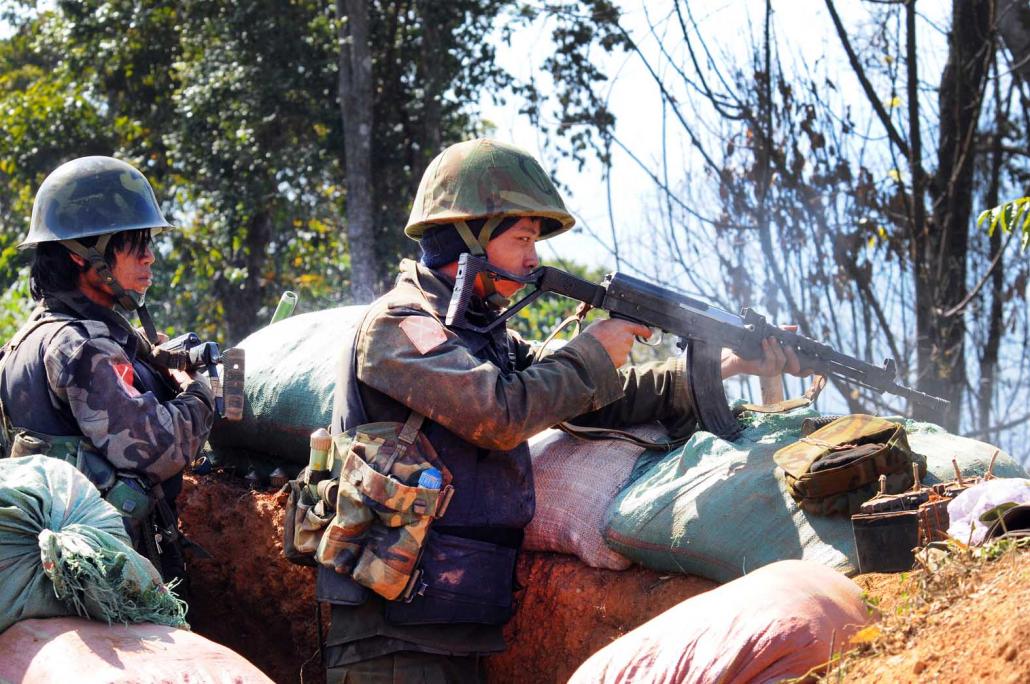
Soldiers from the Kachin Independence Army on the front lines near Laiza, Kachin State. (Steve Tickner | Frontier)
Zaw Htay said misunderstandings had arisen because ethnic armed groups believed they had the right to conduct national-level political dialogues according to the political dialogue framework.
“There are some obstacles, so the meetings could not be called,” he said.
“There are different understandings on the NCA from the start. We have to negotiate again about understandings.”
Representatives of initial NCA signatory groups have declined to comment about the situation, and non-signatories have also been silent.
Zaw Htay said the postponed third UPC would be convened after national-level political dialogues were held in areas under the NMSP control and after controversies involving initial NCA signatories were resolved.
U Soe Thane, a President’s Office minister in the Thein Sein administration, said the peace process would be successful if the government understood the diversity of the ethnic nationalities and built confidence.
“You mustn’t be willing to exploit any situation for your own advantage,” Soe Thane told Frontier.
“Only if you try with a white and pure heart, will the peace process be successful. The current situation is good. Rather than quarrelling, we have to move forward,” he said.
Aung San Suu Kyi expressed confidence on February 13 that challenges to the peace process would be overcome.
“We will face whatever happens. We will solve any problem we have,” she said.
TOP PHOTO: The NCA signing ceremony for the New Mon State Party and Lahu Democratic Union in Nay Pyi Taw on February 13. (AFP)


